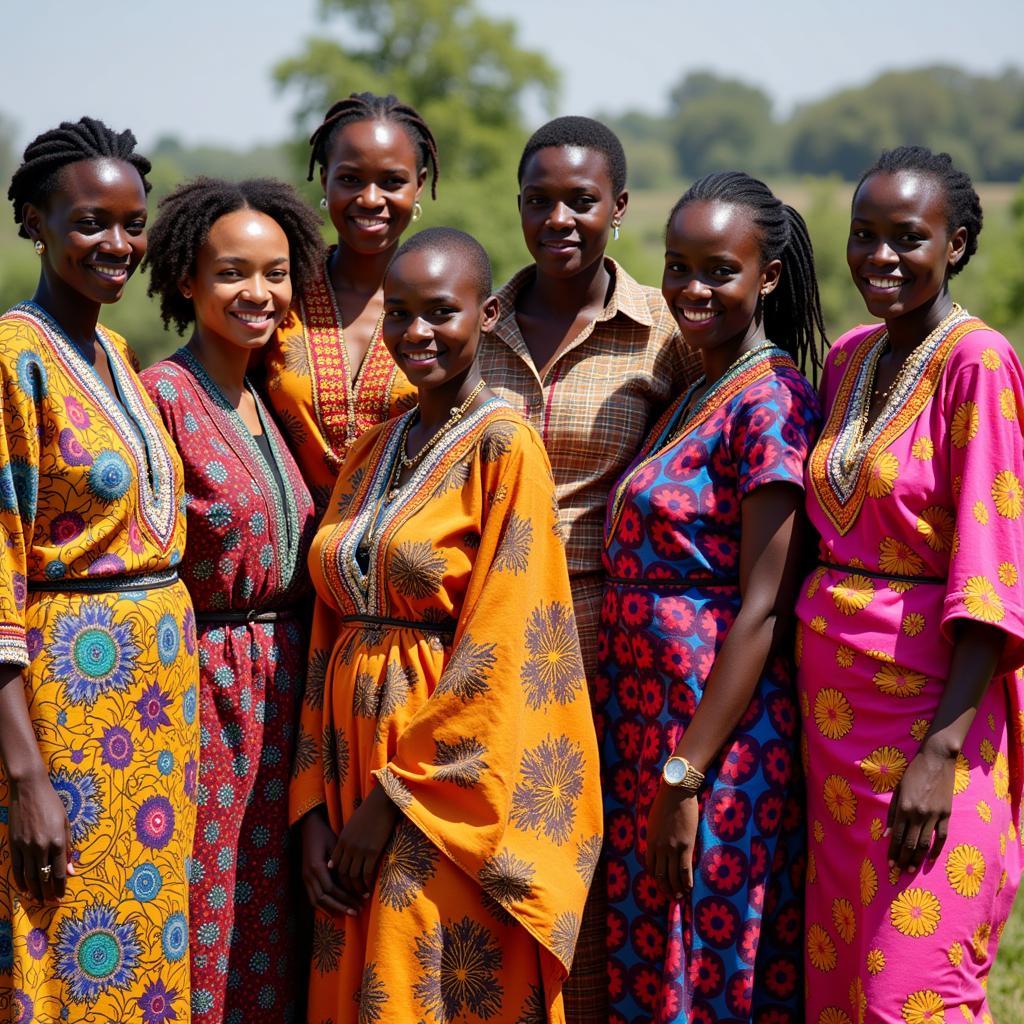About African Pygmies: Unveiling the Secrets of a Unique Culture
African Pygmies, also known as Mbuti or Twa, are an indigenous group of people inhabiting the rainforests of Central Africa. They are renowned for their unique culture, traditional lifestyle, and close connection to nature. This article will delve into the fascinating world of African Pygmies, exploring their history, language, traditions, and the challenges they face in the modern world.
Who are the African Pygmies?
African Pygmies are a diverse group of people, with varying origins, languages, and customs. They are broadly classified as hunter-gatherers, relying on their intimate knowledge of the rainforest environment to sustain themselves. Their traditional way of life is deeply rooted in their connection to the natural world, with a strong emphasis on sustainable living and respecting the balance of nature.
Origins and History
The origins of African Pygmies remain a subject of ongoing research and debate. Some theories suggest that they are among the earliest inhabitants of the rainforest, while others propose that they arrived later, migrating from other parts of Africa. Archaeological evidence points to a long history of Pygmy presence in Central Africa, dating back thousands of years.
Language and Culture
African Pygmies speak a variety of languages, often related to the Bantu languages spoken by their neighboring agricultural communities. Their cultures are highly diverse, with variations in traditions, rituals, and social structures. However, certain commonalities exist, including a strong emphasis on music, dance, storytelling, and oral history.
Traditional Lifestyle and Practices
African Pygmies have long thrived in the rainforest environment, relying on their knowledge of plants, animals, and the natural world. They are skilled hunters and gatherers, using traditional tools and techniques to secure their sustenance. Their lives are closely tied to the rhythms of nature, with a deep respect for the spirits of the forest.
Hunting and Gathering
Hunting is an integral part of Pygmy life. Men traditionally use bows and arrows, along with traps and snares, to hunt small game such as monkeys, antelope, and birds. They also gather fruits, vegetables, and nuts from the forest.
Traditional Music and Dance
Music and dance play a central role in Pygmy culture. They use instruments such as drums, xylophones, and flutes to create vibrant and rhythmic music, often accompanied by elaborate dance performances. These musical and dance traditions are deeply interwoven with their beliefs and rituals.
Storytelling and Oral History
Storytelling is another vital aspect of Pygmy culture. Through elaborate narratives and myths, they transmit their knowledge, traditions, and history to future generations. These stories often feature animal characters, spirits, and ancestral figures, offering insights into their worldview and beliefs.
Challenges and Threats
Despite their resilience and adaptability, African Pygmies face a range of challenges in the modern world. These challenges include:
- Deforestation and Habitat Loss: Rapid deforestation, driven by logging, agriculture, and mining, has dramatically impacted Pygmy communities. This loss of habitat threatens their traditional way of life and survival.
- Marginalization and Discrimination: Pygmies often face marginalization and discrimination from neighboring agricultural communities. They are frequently denied access to education, healthcare, and economic opportunities, leading to poverty and social exclusion.
- Exploitation and Labor Abuse: Pygmies have been subjected to exploitation and labor abuse, particularly in the logging and mining industries. They are often forced to work under dangerous conditions for little or no pay.
Protecting Pygmy Cultures
Efforts are underway to protect Pygmy cultures and ensure their well-being. These efforts include:
- Advocacy and Human Rights Organizations: Organizations dedicated to defending the rights of indigenous peoples, including Pygmies, are working to raise awareness about their plight and advocate for their rights.
- Community-Based Conservation: Programs focused on community-based conservation promote sustainable practices and empower Pygmy communities to manage their natural resources.
- Education and Empowerment: Providing access to education and training equips Pygmies with skills and knowledge necessary to participate in the modern world and preserve their cultural heritage.
Dr. Ngozi Okoye, anthropologist and expert on African Pygmies: “The challenges faced by Pygmies are a testament to the need for greater understanding and respect for their unique culture and traditions. By empowering them to participate in decision-making processes that affect their lives, we can ensure their continued survival and cultural vitality.”
Conclusion
African Pygmies represent a remarkable chapter in human history, with a profound connection to the natural world. Their resilience and adaptability have allowed them to thrive in challenging environments for generations. However, they face significant threats to their survival and cultural integrity. By recognizing their unique contributions and supporting their rights, we can ensure that their rich cultural heritage continues to thrive in the years to come.
FAQ
Q: What are the main differences between African Pygmies and other African tribes?
A: African Pygmies are distinguished by their hunter-gatherer lifestyle, intimate connection to the rainforest, and distinctive physical characteristics. They are not a single tribe but a diverse group of people inhabiting different regions of Central Africa.
Q: How do African Pygmies communicate?
A: African Pygmies speak a variety of languages, often related to Bantu languages. They also rely heavily on non-verbal communication, including gestures, facial expressions, and body language.
Q: What are the traditional beliefs of African Pygmies?
A: African Pygmy beliefs are deeply rooted in their connection to nature. They believe in the existence of spirits, ancestors, and powerful deities who reside in the forest. Their rituals and ceremonies often involve offerings to these spirits and deities.
Q: What are some of the challenges faced by Pygmies in the modern world?
A: African Pygmies face significant challenges, including deforestation, marginalization, exploitation, and lack of access to basic services like healthcare and education.
Q: What can be done to protect Pygmy cultures and traditions?
A: Protecting Pygmy cultures requires a multi-pronged approach, including advocacy, conservation, education, and empowerment. By supporting their rights, promoting sustainable practices, and providing access to resources, we can help ensure their continued survival and cultural vitality.



